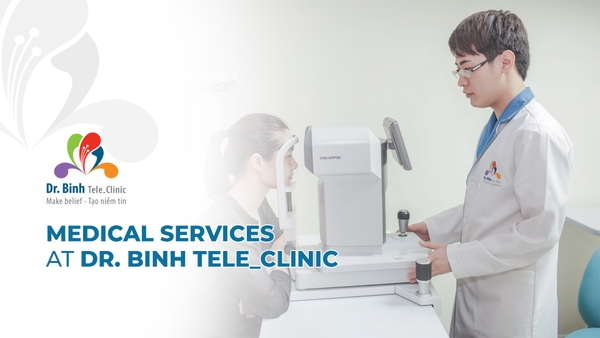10 natural ways to lower your blood pressure
- Dr.Binh Tele_Clinic offers up to 30% off on endoscopy with anesthesia combos
- Special Offers at Dr.Binh Tele_Clinic on Vietnamese Women’s Day
- Dangerous complications of cerebral infarction
- What to know when treating urinary stones?
26/06/2020
-0 Bình luận
High blood pressure is a dangerous condition that can damage your heart. If left uncontrolled, it raises your risk of heart disease and stroke. But there’s good news. There are a number of things you can do to lower your blood pressure naturally, even without medication.
Here are 10 natural ways to combat high blood pressure.
1. Walk and exercise regularly
Exercise is one of the best things you can do to lower high blood pressure. Regular exercise helps make your heart stronger and more efficient at pumping blood, which lowers the pressure in your arteries.

In fact, 150 minutes of moderate exercise, such as walking, or 75 minutes of vigorous exercise, such as running, per week can help lower blood pressure and improve your heart health.
Bottom Line: Walking just 30 minutes a day can help lower your blood pressure. More exercise helps reduce it even further.
2. Reduce your sodium intake
Salt intake is high around the world. In large part, this is due to processed and prepared foods. For this reason, many public health efforts are aimed at lowering salt in the food industry. In many studies, salt has been linked to high blood pressure and heart events, like stroke. However, more recent research indicates that the relationship between sodium and high blood pressure is less clear.
If you already have high blood pressure, it’s worth cutting back your sodium intake to see if it makes a difference. Swap out processed foods with fresh ones and try seasoning with herbs and spices, rather than salt.
Bottom Line: Most guidelines for lowering blood pressure recommend lowering sodium intake. However, that recommendation might make the most sense for people who are salt-sensitive.
3. Drink less alcohol
Drinking alcohol can raise blood pressure. In fact, alcohol is linked to 16% of high blood pressure cases around the world. While some research has suggested that low-to-moderate amounts of alcohol may protect the heart, those benefits may be offset by negative effects.
Bottom Line: Drinking alcohol in any quantity may raise your blood pressure. Limit your drinking to no more than one drink a day for women, two for men.

4. Cut back on caffeine
If you’ve ever downed a cup of coffee before you’ve had your blood pressure taken, you’ll know that caffeine causes an instant boost. However, there’s not a lot of evidence to suggest that drinking caffeine regularly can cause a lasting increase.
In fact, people who drink caffeinated coffee and tea tend to have a lower risk of heart disease, including high blood pressure, than those who don’t.
Caffeine may have a stronger effect on people who don’t consume it regularly. If you suspect you’re caffeine-sensitive, cut back to see if it lowers your blood pressure.
Bottom Line: Caffeine can cause a short-term spike in blood pressure, although for many people it does not cause a lasting increase.
5. Learn to manage stress
Stress is a key driver of high blood pressure. When you’re chronically stressed, your body is in a constant fight-or-flight mode. On a physical level, that means a faster heart rate and constricted blood vessels.
When you experience stress, you might also be more likely to engage in other behaviors, such as drinking alcohol or eating unhealthy food, that can negatively affect blood pressure.
Several studies have explored how reducing stress can help lower blood pressure. Here are two evidence-based tips to try:
- Listen to soothing music: Calming music can help relax your nervous system. Research has shown it’s an effective complement to other blood pressure therapies.
- Work less: Working a lot, and stressful work situations in general, are linked to high blood pressure.
Bottom Line: Chronic stress can contribute to high blood pressure. Finding ways to manage stress can help.

6. Eat dark chocolate or cocoa
Here’s a piece of advice you can really get behind. While eating massive amounts of chocolate probably won’t help your heart, small amounts may. That’s because dark chocolate and cocoa powder are rich in flavonoids, plant compounds that cause blood vessels to dilate.
For the strongest effects, use non-alkalized cocoa powder, which is especially high in flavonoids and has no added sugars.
Bottom Line: Dark chocolate and cocoa powder contain plant compounds that help relax blood vessels, lowering blood pressure.
7. Lose weight
If you’re overweight, losing weight can make a big difference for your heart health. According to a 2016 study, losing 5% of your body mass could significantly lower high blood pressure. In previous studies, losing 17 pounds (7.7 kg) was linked to lowering systolic blood pressure by 8.5 mmHg and diastolic blood pressure by 6.5 mmHg.
To put that in perspective, a healthy reading should be less than 120/80 mmHg. The effect is even greater when weight loss is paired with exercise.
Losing weight can help your blood vessels do a better job of expanding and contracting, making it easier for the left ventricle of the heart to pump blood.
Bottom Line: Losing weight can significantly lower high blood pressure. This effect is even greater when you exercise.
8. Quit smoking
Among the many reasons to quit smoking is that the habit is a strong risk factor for heart disease.Every puff of cigarette smoke causes a slight, temporary increase in blood pressure. The chemicals in tobacco are also known to damage blood vessels.
Surprisingly, studies haven’t found a conclusive link between smoking and high blood pressure. Perhaps this is because smokers develop a tolerance over time. Still, since both smoking and high blood pressure raise the risk of heart disease, quitting smoking can help reverse that risk.
Bottom Line: There’s conflicting research about smoking and high blood pressure, but what is clear is that both increase the risk of heart disease.

9. Cut added sugar and refined carbs
There’s a growing body of research showing a link between added sugar and high blood pressure. In the Framingham Women’s Health Study, women who drank even one soda per day had higher levels than those who drank less than one soda per day.
Some studies have shown that low-carb diets may also help reduce blood pressure. One study on people undergoing statin therapy found that those who went on a six-week, carb-restricted diet saw a greater improvement in blood pressure and other heart disease markers than people not on a diet (35).
Bottom Line: Refined carbs, especially sugar, may raise blood pressure. Some studies have shown that low-carb diets may help reduce your levels.
10. Try meditation or deep breathing
While these two behaviors could also fall under “stress reduction techniques,” meditation and deep breathing deserve specific mention. Both meditation and deep breathing are thought to activate the parasympathetic nervous system. This system is engaged when the body relaxes, slowing the heart rate and lowering blood pressure.
There’s quite a bit of research in this area, with studies showing that different styles of meditation appear to have benefits for lowering blood pressure. Deep breathing techniques can also be quite effective.
In one study, participants were asked to either take six deep breaths over the course of 30 seconds or to simply sit still for 30 seconds. Those who took breaths lowered their blood pressure more than those who just sat.
Bottom Line: Both meditation and deep breathing can activate the parasympathetic nervous system, which helps slow your heart rate and lower blood pressure.
Nguồn: Healthline




















Bình luận của bạn